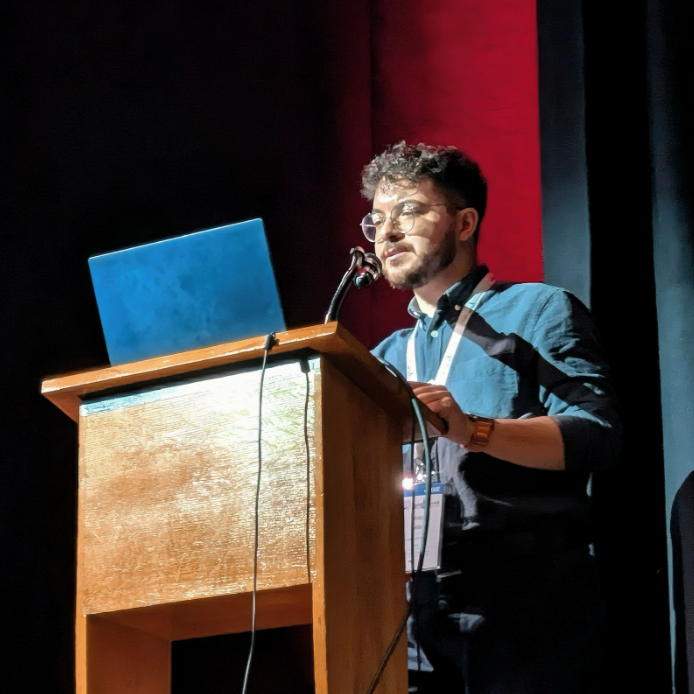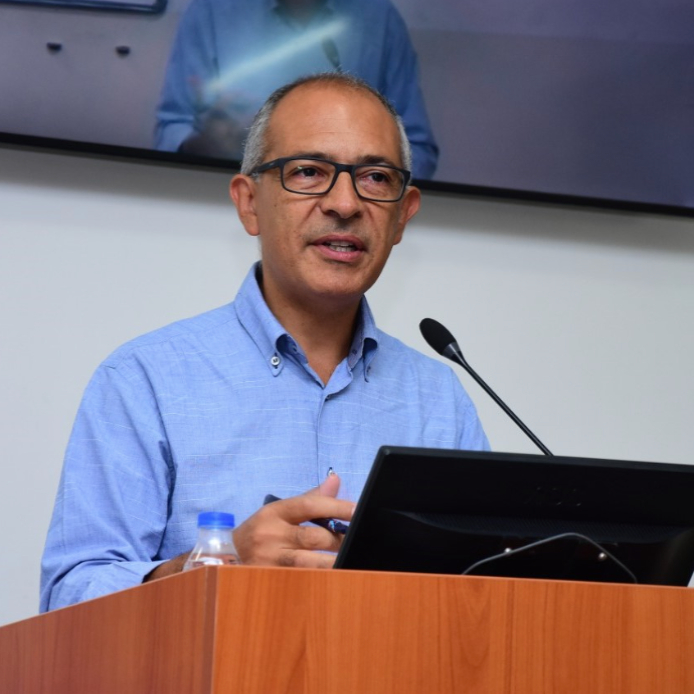🏆 Challenge Overview #
Mission Statement
The Forensic Handwritten Document Analysis (FHDA) Challenge invites participants to tackle the binary classification task of determining whether a given pair of handwritten documents were authored by the same individual.
This competition introduces a unique cross-modal comparison between traditional handwritten documents (scanned) and documents written directly on digital devices such as tablets or graphic tablets.
Advanced AI Challenge
Develop state-of-the-art machine learning solutions for forensic document analysis using cutting-edge deep learning architectures.
Cross-Modal Analysis
Pioneer new techniques for comparing handwriting across different writing modalities and digital platforms.
Global Recognition
Gain international recognition at IEEE MetroXRAINE 2025, one of the premier conferences in measurement and analysis.
📅 Challenge Timeline #
Important: Challenge Completed
The FHDA Challenge 2025 has successfully concluded with outstanding participation from research teams worldwide. Below you can find the complete timeline and final results.
Team registration and formation
Dataset availability for participants
Final evaluation dataset
Final results submission
Final rankings and ground truth release
Winner paper submission deadline
🏆 Final Rankings & Results #
Challenge Results - June 25, 2025
The FHDA Challenge 2025 has concluded! Below are the final rankings based on accuracy percentage achieved by each participating team. We congratulate all teams for their outstanding contributions to this challenge.
Ground Truth Data Available
The complete ground truth dataset used for evaluation is now publicly available for research purposes:
This dataset contains the reference answers used to evaluate all team submissions during the FHDA Challenge 2025.
🎯 Challenge Objective
Primary Goal
Develop innovative deep learning architectures and novel algorithms to achieve superior accuracy in cross-modal authorship verification. The challenge focuses on the binary classification task of determining whether handwritten document pairs were authored by the same individual.
Evaluation Methodology
Teams are evaluated using a sophisticated weighted accuracy scoring system that rewards both correctness and confidence calibration. The final score combines the number of correct classifications with the probability confidence assigned to each prediction.
- Binary classification accuracy
- Confidence-weighted scoring
- Cross-modal generalization
- Robustness across writing styles
Dataset Characteristics
The challenge features a novel cross-modal dataset specifically designed to test the limits of current authorship verification technologies:
- Traditional pen-and-paper documents
- Digital tablet-written samples
- Diverse handwriting styles and languages
- Various writing instruments and conditions
📊 Dataset Information
Novel Cross-Modal Dataset
We present a dataset specifically curated for forensic handwritten document analysis, featuring unprecedented cross-modal document pairs.
Traditional Documents
High-resolution scanned documents written with various instruments on different paper types, representing real-world forensic scenarios.
Digital Documents
Documents created directly on digital devices including tablets, graphic tablets, and stylus-enabled devices.
Diverse Authors
Samples from multiple authors with varying handwriting characteristics, ages, and cultural backgrounds.
Technical Specifications
200 carefully curated document pair comparisons with comprehensive metadata and ground truth annotations.
👥 Participating Teams #
Global Participation
The FHDA Challenge 2025 attracted talented research teams from leading institutions worldwide, representing diverse approaches to forensic document analysis.
📝 Registration Information
Registration Closed
The registration period for FHDA Challenge 2025 has concluded. The challenge has been completed successfully with participation from research teams worldwide.
Registration Requirements (Completed)
Teams were required to register by May 16, 2025 with the following information:
- Team name and institutional affiliation
- Complete member details (names, emails, roles)
- Research focus and methodology approach
- Commitment to ethical research practices
Submission Process (Completed)
Final submissions included:
- Technical documentation and methodology
- Complete results in specified format
- Confidence scores for each prediction
- Source code and reproducibility materials
Future Challenges
Stay tuned for future FHDA challenges and related forensic document analysis competitions. Follow our repository and institutional websites for announcements.
🌟 Challenge Organizers #
Main Contact
Mirko Casu
Ph.D. Student
University of Catania, Italy
IEEE Student Member
For all inquiries regarding the challenge:
Email: mirko.casu@phd.unict.it



❓ Frequently Asked Questions
What was the main objective?
The challenge focused on developing innovative AI solutions for cross-modal authorship verification in handwritten documents, bridging traditional forensic analysis with modern digital writing technologies.
Who could participate?
The challenge was open to researchers, developers, and students from academic institutions and industry with expertise in machine learning, computer vision, and forensic document analysis.
How were submissions evaluated?
Evaluation used a sophisticated weighted scoring system combining classification accuracy with confidence calibration, rewarding both correctness and appropriate uncertainty estimation.
Where can I access the dataset?
Access to the complete dataset was granted exclusively to registered teams who had successfully completed the official registration process.
What were the main achievements?
The challenge achieved a peak accuracy of 64.5% by team JNU_DNSLAB, establishing new benchmarks for cross-modal forensic handwriting analysis and advancing the state-of-the-art.
How can I learn about future challenges?
Follow our GitHub repository, institutional websites, and the IEEE MetroXRAINE conference series for announcements about future forensic document analysis challenges.
📚 Publication Opportunities
Research Impact & Publications
- Winner Publication: The champion team has been invited to submit a comprehensive paper for IEEE MetroXRAINE 2025 proceedings
- Conference Presentation: Top teams will present their innovative approaches at the conference
- Journal Submission: A detailed challenge overview and analysis will be submitted to a top-tier journal


